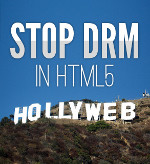Center for a Stateless Society
building public awareness of left-wing market anarchism
I can not say I always agree with all this site stands for but much is worth reading including the following article. (E):
Posted by Dave Hummels on Mar 7, 2013
The Associated Press reports that eight former DEA administrators are urging the Obama administration to sue Washington and Colorado over their voter-approved moves toward marijuana legalization.
One former chief, Peter Bensinger, fears that successful legalization efforts will lead to “a domino effect” in the US. Where have we heard that phrase before? Bensinger continues breathlessly, “My fear is that the Justice Department will do what they are doing now: do nothing and say nothing … If they don’t act now, these laws will be fully implemented in a matter of months.”
So drug warriors are losing their minds over Colorado and Washington. Good! We can only hope that Bensinger’s dire predictions come true and that more Americans are indeed waking up to the absurdity of marijuana prohibition.
The former DEA bureaucrats argue, accurately, that marijuana remains illegal under the Controlled Substances Act. Even in cases involving medical marijuana, the federal government may abuse the commerce clause as a rationale to criminalize users, growers and sellers of marijuana (per Gonzales v. Raich). The commerce clause has become the federal government’s drug war equivalent of catch-all disorderly conduct statutes in the states.
Unfortunately, these goons have a solid case to present to US Attorney General Holder. In New State Ice Co. v. Liebmann (1932), US Supreme Court Justice Louis D. Brandeis said, “It is one of the happy incidents of the federal system that a single courageous state may, if its citizens choose, serve as a laboratory; and try novel social and economic experiments without risk to the rest of the country.” But today’s political class views federalism as archaic.
Hopefully the administration will choose to ignore this thuggish recommendation. But if they do decide to litigate, this will be another sign that the feds don’t give a damn about the will of the people. Liberty-loving Americans should respond to this federal intrusion with a massive wave of civil disobedience.
Let’s start by publicly shaming the DEA heads mentioned by the AP: “Bensinger, John Bartels, Robert Bonner, Thomas Constantine, Asa Hutchinson, John Lawn, Donnie Marshall and Francis Mullen.” Get to know their names, libertarians. They are your enemies!
Then, let’s publicize the efforts of these authoritarians to undermine the voters of Colorado and Washington. Ask them why they continue to support a policy with openly racist origins which has resulted in mass incarceration. Publicly reveal the motives of the police agencies that enforce these laws . When drug warriors drone on about “protecting the children,” confront them with the horrific reality of wrong door raids, slaughtered family pets and children terrorized with flash-bangs. Wherever an apologist for prohibition gives a speech or attends a meeting, he or she should be met by throngs of boisterous picketers.
As we expose these petty tyrants, we should also seek opportunities to throw a wrench into the machinery of prohibition. A mass movement of jury nullification in drug cases may be a promising tactic. Prosecutors can use voir dire to remove one or two questionable jurors, but what if nullification becomes widespread? They can’t remove all of us. In the future, we should view jury duty as a chance to liberate non-violent people from the state’s clutches.
In Tao Te Ching, the Chinese sage Lao Tzu writes, “The more laws are posted, the more robbers and thieves there are.” Time and time again, this observation has been proven correct. The violence of the drug war is perpetuated by government, yet officials insist they must keep fighting. In their vile attempt to protect their old turf, former DEA bosses show their true colors. They are gangsters with federal pensions. They will do anything to ensure that they and their ilk continue to get their cut of drug war booty. It is up to us to expose their racket and to finish the job sensible voters in Colorado and Washington started in November.
C4SS Fellow Dave Hummels is a Left-libertarian writer from Central Illinois. He earned a bachelor’s degree in criminal justice from the University of Illinois-Springfield. Dave has over a decade of experience in the field of healthcare security and is also a licensed emergency medical technician.
Related articles
- Ex-DEA heads: Feds should nullify state pot laws (kansascity.com)
- Ex-DEA Chief Lobbying Holder to Nullify Marijuana Legalization Owns a Drug Testing Company (activistpost.com)





 Ms. Reynolds did not quit because she lost courage; she quite because the government stacked the deck against her. She quit because a federal prosecutor is able to manipulate the legal system and the judges refuse to object to an obvious injustice.
Ms. Reynolds did not quit because she lost courage; she quite because the government stacked the deck against her. She quit because a federal prosecutor is able to manipulate the legal system and the judges refuse to object to an obvious injustice.


 Thanks to:
Thanks to:



 Moorbey'z Blog
Moorbey'z Blog Nikola Tesla on PBS
Nikola Tesla on PBS

